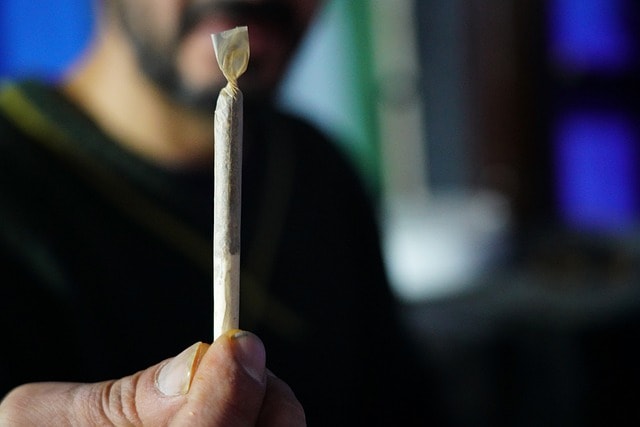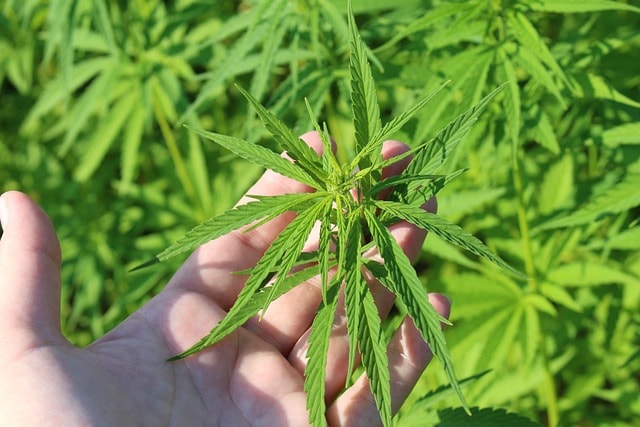AB 1775 and The Cannabis Industry: California Cannabis Laws

Introduction
In a significant step forward for California’s cannabis industry, Assembly Bill 1775 (AB 1775) has been signed into law, allowing licensed cannabis retailers and microbusinesses to prepare and sell non-cannabis-infused food and beverages and host live events in designated consumption areas.
This bill represents a landmark shift in how cannabis consumption spaces operate, bringing them closer to the Amsterdam-style cannabis cafes many advocates have long envisioned.
In this article, we’ll break down AB 1775, exploring its key provisions, implications for businesses and communities, and the regulations governing its implementation under cannabis law.
What is AB 1775?

Understanding the Bill
Assembly Bill 1775 (AB 1775), authored by Assemblymember Matt Haney, updates California’s cannabis regulations by permitting:
- The preparation and sale of non-cannabis-infused food and beverages in licensed cannabis consumption lounges.
- The hosting of live entertainment events within designated consumption spaces.
Why Was AB 1775 Introduced?
The cannabis industry in California has faced challenges, including:
- Competition from the illegal cannabis market.
- High tax burdens on legal operators.
- Limited social spaces for legal cannabis consumption.
- Navigating complex compliance issues within the regulatory landscape.
By allowing food sales and entertainment, AB 1775 aims to:
- Boost retail revenue for licensed cannabis businesses.
- Create a unique social experience for customers.
- Encourage compliance with state regulations by making legal consumption more appealing.
Key Provisions of AB 1775

1. On-Site Food and Beverage Sales
- Licensed cannabis retailers and microbusinesses can prepare and sell non-cannabis-infused food and non-alcoholic beverages on-site.
- All food and beverage preparation must comply with the California Retail Food Code and local health regulations.
Explanation:
The California Retail Food Code sets health and safety standards for food handling, preparation, and sale to ensure public safety.
Did You Know?
Before AB 1775, cannabis consumption lounges could only sell pre-packaged snacks and drinks, limiting their ability to create an immersive social experience.
2. Hosting Live Events
- Cannabis lounges can now host live performances, musical acts, and other entertainment events.
- Ticket sales are permitted for these events.
- Lounges must ensure compliance with local entertainment licensing requirements.
Why It Matters:
Live events add value to the cannabis lounge experience, attracting more customers and fostering community engagement.
Real Example:
Amsterdam’s famed cannabis cafes have successfully blended food, drinks, and entertainment, creating a global tourism draw. AB 1775 aims to replicate this model in California.
3. Local Jurisdiction Approval
Local governments have the authority to approve or deny the implementation of AB 1775 within their jurisdictions, which directly impacts cannabis related businesses.
Cities and counties can establish additional requirements for lounges, including ventilation standards and noise restrictions.
Why Local Control is Important:Local jurisdictions understand their community dynamics better and can address concerns related to public safety, noise complaints, and health risks.
4. Employee Safety Regulations
- Employers must provide respirators upon request to staff working in designated cannabis consumption areas.
- Adequate ventilation systems must be in place to reduce exposure to secondhand smoke.
- Compliance with Cal/OSHA guidelines is mandatory.
Explanation:
Cal/OSHA (California Division of Occupational Safety and Health) ensures workplace safety and health standards are met across the state.
Did You Know?
Prolonged exposure to cannabis smoke can pose health risks, making proper ventilation and safety equipment essential for lounge employees.
How AB 1775 Benefits the Cannabis Industry
1. Increased Revenue Opportunities
Food and beverage sales offer additional income streams for cannabis companies, helping them navigate compliance and regulatory challenges while boosting their revenue.
Hosting live events can attract larger audiences.
2. Enhanced Customer Experience
A more social, café-like atmosphere that embraces cannabis culture encourages repeat visits.
Live entertainment adds entertainment value to cannabis lounges.
3. Competitive Advantage Against Illicit Market
- By offering better experiences, legal operators can draw customers away from unlicensed competitors.
Real Example:
A cannabis lounge in San Francisco reported increased foot traffic after hosting live acoustic sessions and serving freshly made pastries.
Challenges and Concerns with AB 1775
1. Health and Safety Risks
- Secondhand cannabis smoke poses risks to employees and patrons.
- Proper ventilation systems are critical for compliance.
2. Local Resistance
- Some jurisdictions may refuse to approve cannabis lounges under AB 1775 due to community concerns about safety and public perception.
3. Regulatory Compliance
Lounges must comply with food safety standards and entertainment permits, and often require specialized legal services to navigate these regulations, which can increase operational costs.
Complex Terms Explained
California Retail Food Code:
State law regulating the safe preparation, handling, and sale of food in public venues.
Cal/OSHA:
A California agency ensuring workplace safety standards are upheld.
Cannabis Lounge:
A licensed space where individuals can legally consume cannabis products in a social setting, often operated by a cannabis business.
FAQs About AB 1775
1. Can all cannabis retailers sell food under AB 1775?
No, only licensed cannabis retailers and microbusinesses with approved consumption areas can sell non-cannabis-infused food and beverages.
2. Are alcoholic drinks allowed in cannabis lounges under AB 1775?
No, alcohol sales remain prohibited in cannabis consumption areas.
3. Can lounges host live events anytime?
Events must comply with local entertainment permits and regulations.
4. Who ensures compliance with AB 1775?
Local health departments, Cal/OSHA, and local jurisdiction authorities oversee compliance.
Real Case Example: Cannabis Lounges in Action
A consumption lounge in West Hollywood successfully piloted live jazz nights while serving gourmet coffee and pastries. Post-AB 1775, similar experiences are expected to flourish across California. Existing clients in the cannabis industry are adapting to these new opportunities by expanding their service offerings and enhancing customer experiences.
Conclusion
AB 1775 marks a great moment for California’s cannabis industry, allowing businesses to create vibrant social spaces with food, drinks, and live entertainment.
However, the success of AB 1775 will depend on:
- Effective local oversight.
- Compliance with health and safety standards.
- Ongoing collaboration between businesses and regulators.
For more official information, visit the California Legislative Information website
Related Terms: Law firm, medical marijuana collectives, intellectual property, federal courts, recreational cannabis, premium cannabis, partnership disputes, legal needs, state agencies, testing labs,
Next Article
LA Real Estate Attorney: For Property Owners and Investors in Los Angeles













